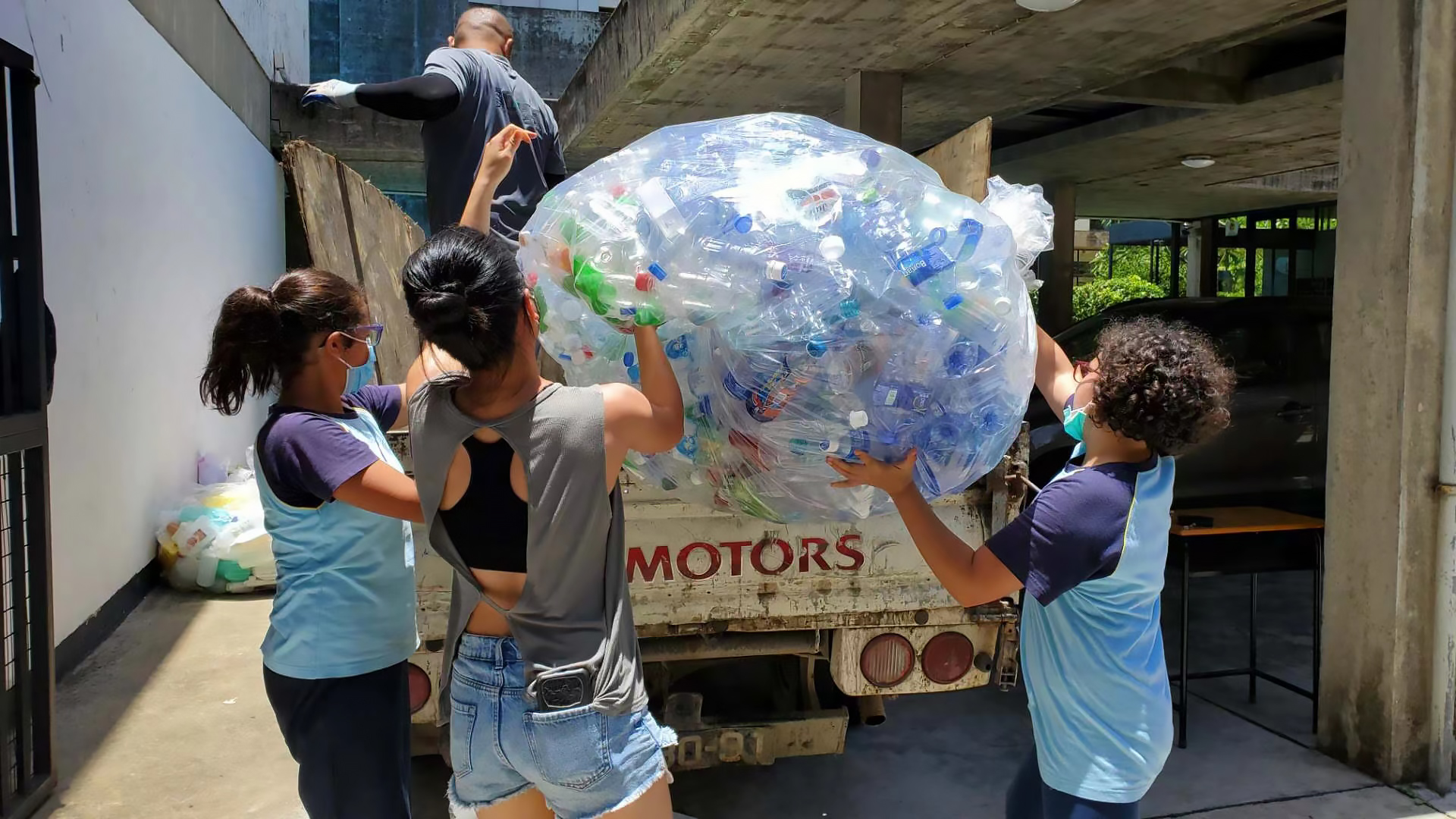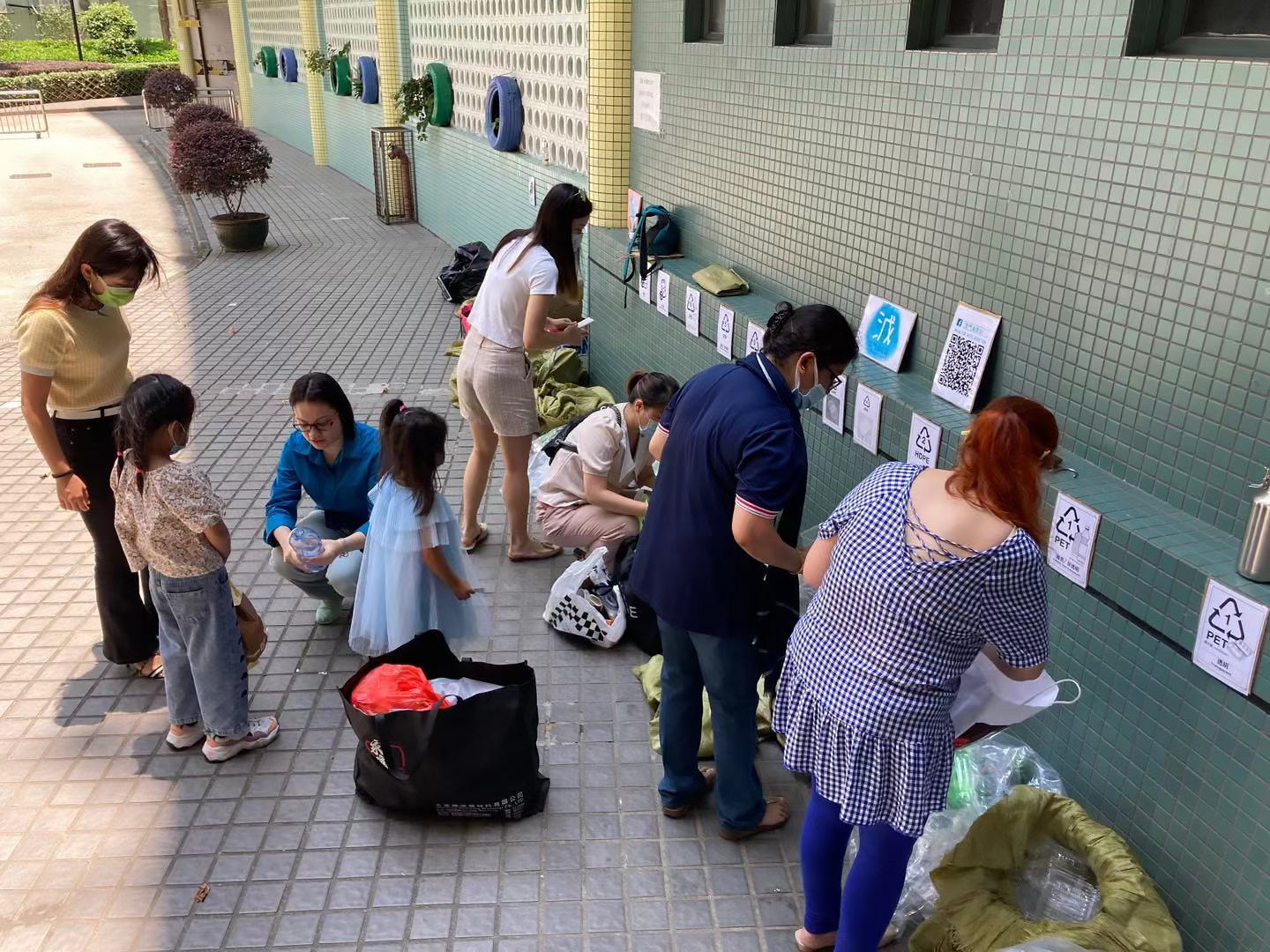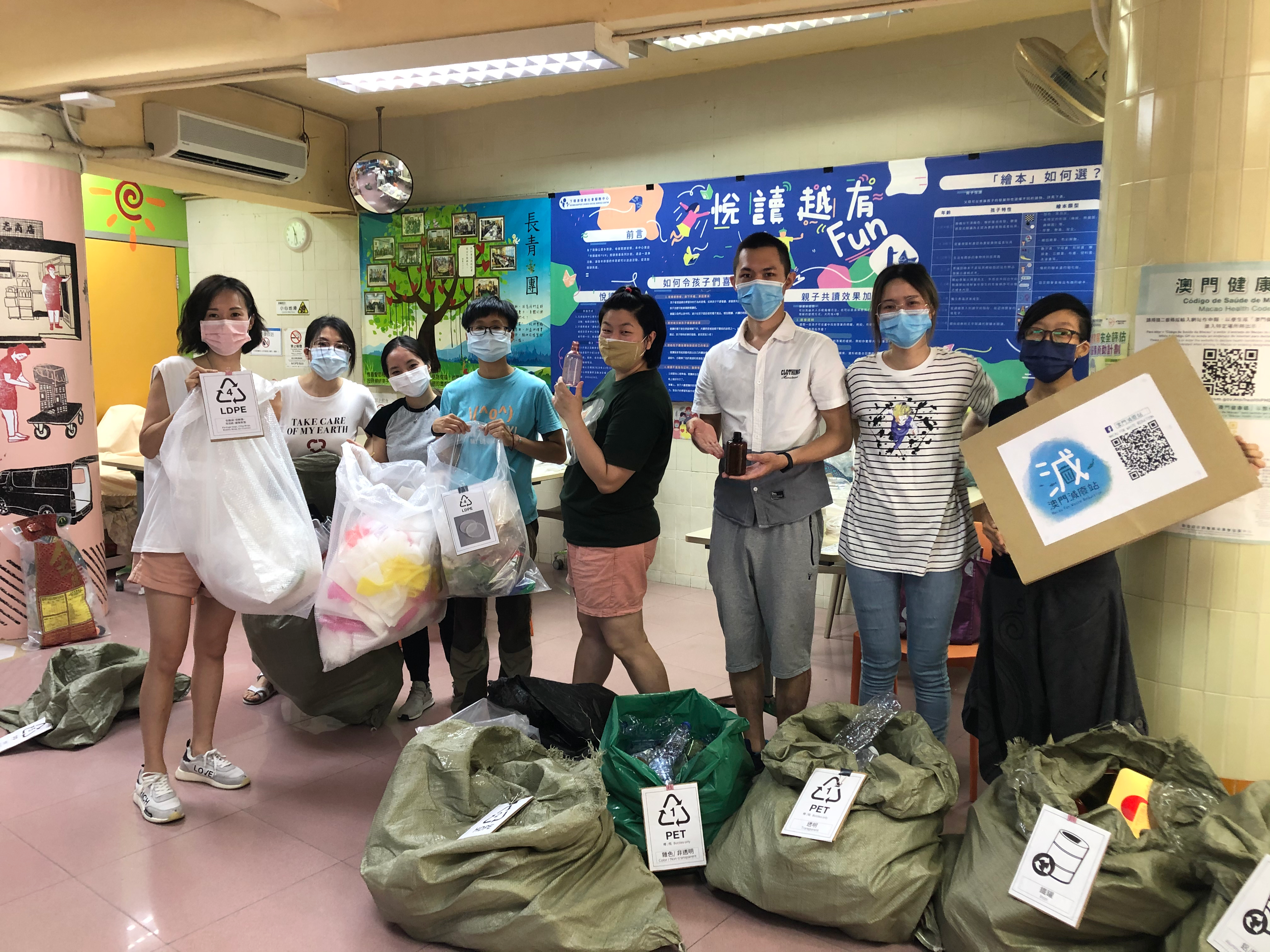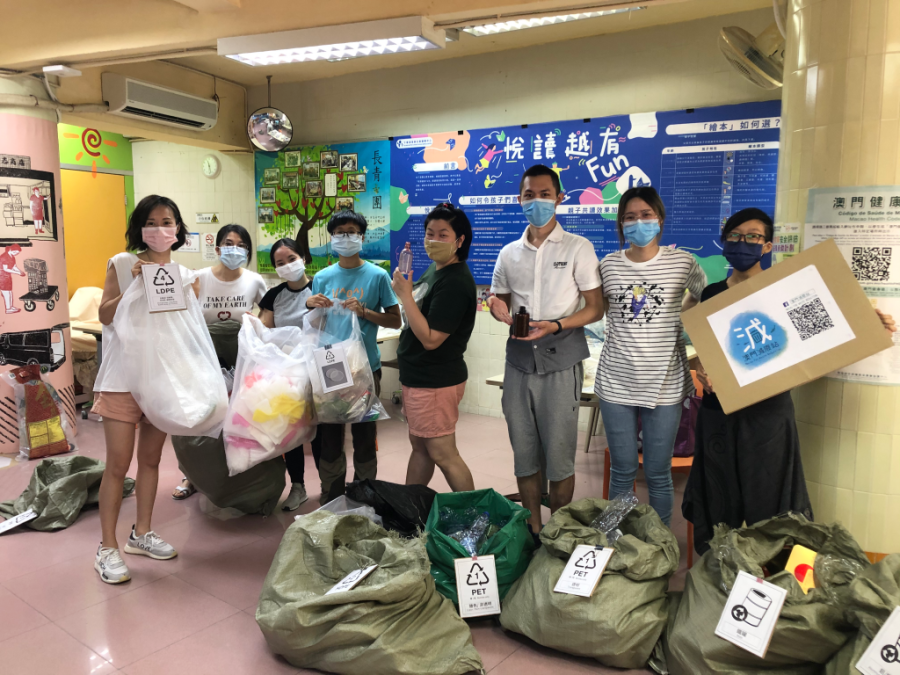Every second Saturday of the month, dozens of individuals and families line up at the back door of Macau Portuguese School, each carrying bags of household items such as plastic bottles, food trays and takeaway boxes. They are here to drop off the items at the monthly recycling station hosted by Macau for Waste Reduction, a non-government group that aims to promote and demonstrate proper recycling methods in the city.
Since its launch in 2019, Macau for Waste Reduction has become a household name for environmentally conscious citizens in Macao. Founded by around 10 eco-activists, the group started the campaign by hosting one to two drop-off locations each month.
As the campaign gradually gains prominence, more community stakeholders – such as schools, community centres and commercial brands – have reached out to the group, hoping to co-host pop-up or permanent recycling stations.
Today, the group operates regular recycling stations at five different locations: Macau Portuguese School, Ha Wan Baptist Association, University of Saint Joseph (Ilha Verde campus), Colégio Perpétuo Socorro Chan Sui Ki (Sucursal) and Macau Anglican College.
Capricorn Leung, a co-founder of Macau for Waste Reduction, believes that the campaign’s expansion reflects an increasing demand for proper recycling channels in the city.
“Macao generates an overwhelming amount of waste due to a large number of tourists,” explains Leong. “Meanwhile, people also rely heavily on takeaway food which uses single-use containers. If people cannot recycle these materials properly, they will all be sent to the incinerators and destroyed.”
Macao Recycling: Less than 1 per cent

Municipal waste is one of the most pressing environmental issues for Macao to tackle. According to a government report, the amount of solid waste created in the city reached 437,592 tonnes in 2020, equivalent to 1.74 kg of solid waste per person per day. Although Macao’s solid waste decreased 19.8 per cent compared to 2019 (for the first time in 10 years) due to the pandemic and lack of tourists, Macao still surpassed many nearby cities such as Hong Kong, Beijing and Shanghai, in terms of waste generated per person per day.
Organic waste (33.5 per cent) made up the lion’s share of waste produced in 2020, followed by paper (27.2 per cent) and plastic waste (20.1 per cent). However, the overall recycling rate for these three materials remains as low as less than 1 per cent.
Macao’s inadequate recycling efforts prompted Leong and her friends to take action. According to Leong, before the launch of Macao for Waste Reduction, the government had already set up recycling bins to collect plastic, metal and paper; however, people often throw rubbish inside.
“Today, those who want to recycle properly don’t trust the recycling bins. They are worried that other rubbish could contaminate their recyclables,” Leong explains.
To overcome this problem, Macao for Waste Reduction assigns representatives to host each recycling station, who answer questions and check the quality of the recyclables submitted.
The stations’ design also enables people to sort plastics into five clear categories, namely PET (plastic #1), HDPE (plastic #2), LDPE (plastic #4), PP (plastic #5) and PS (plastic #6). Then there’s a section for plastic materials without a code (such as fruit nets, cling wrap and peanut foam), and others for paper and metal.
“It’s important to sort the plastic properly so that they can be recycled back into their own categories. If various plastics mix, the recycled plastic will be low quality,” Leong explains.
The group sends all the collected plastic to a local recycling factory, where it’s either melted and broken down into plastic pellets or sent to other cities or regions, such as Hong Kong, for further processing.
According to Leong, the ideal solution is to process the plastic locally to avoid the carbon footprint created when sending materials overseas. However, sometimes that is not possible since the local factories need a minimum volume of plastic to operate.
“If more people practice recycling in Macao, the factory will be able to collect more materials and will be able to recycle the plastic locally,” she says.
Taking the lead

Although the amount of recyclables collected by Macau for Waste Reduction (around 100 kg per month) is still nominal, Leong believes that the campaign has planted a seed in the city and raised awareness about proper recycling.
“Not only do our participants keep coming, but they also bring their friends and family members to our events so that more people can learn how to recycle properly,” says Leong.
Leong also notices that people are making an effort to improve the quality of their recyclables by cleaning and sorting them properly. “In the beginning, we always had to check the items they brought us. We even had to ask them to clean the items. But now, the recyclables are usually in good shape.”
Meanwhile, Leong believes that their campaign may have inspired the government to improve its recycling programme. Starting from January 2020, the government expanded its efforts, setting up recycling bins inside about 800 buildings. It also started collecting larger electronics and home devices, such as computers, refrigerators, air-conditioning units, TVs and washing machines. The Eco Fun Clean Recycling Street Stations organised by the Environmental Protection Bureau, for example, now collect a wider variety of plastics like Leong’s group.
“The public support for Macau for Waste Reduction has demonstrated to the government that people in Macao are willing to practice clean recycling, as long as the instructions are clear and the recycling process is transparent,” says Leong.
And although the best solution is to stop creating waste in the first place, there is always a need for recycling in a city like Macao, which relies on imported products. Therefore, she urges the government to take the lead in cultivating recycling practices in Macao.
“Launching a ‘polluters pay’ policy, optimising and enhancing supervision at recycling facilities, and most importantly, promoting recycling and waste reduction education – this is what the government can do to promote better practices in Macao,” says Leong. “Why do we keep sending valuable materials to the incinerators when they could otherwise enjoy a second life?”






